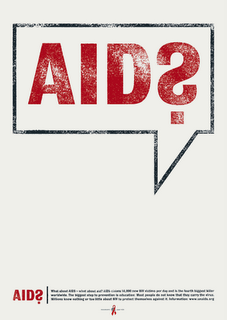
[Spoiler Alert]
During the course of Orhan Pamuk's novel Snow, a theatrical coup takes place which blends the line between artistic presentation and political action, begging the question which W.H. Auden sought to answer when said "Poems don't seem to change anything." If this is true of art, then what use can it be? Is there a role for poetry in a politcal landscape like Kars? As Amardeep Singh
observed , "Aren’t genres like Installation Art and Reality TV also attempting to bridge Reality (which normally has all the authority), and Art (which normally has none)?" Pamuk would seem to agree, in that none of the poems written by Ka through the course of the book appear, but are rather alluded to and formed cloudily in the readers mind indirectly. What Pamuk seems to be attempting is to place us as readers in the situation which Borges describes in the story "Pierre Menard, Author of the Quixote." We do not know Ka's poetry but we are moved to rewrite the poems in our minds as he would have, to vicariously rescue the notebook containing his poems from the hands of terrorists. Does Pamuk intentionally cover these poems in sort of snow, a detritus of political acts, in order to make a point? Snow, in its many guises, does serve role, which extended, provides snow as metaphor for a radical political field which provides an oppurtunity for an active dialectic. An open field can be metaphor for both liberation and battlefield, however, as Pamuk warns in his quotation of Robert Browning at the beginning of the book; "Our interest's on the dangerous edge of things. / The honest thief, the tender murderer, / The superstitious atheist." Pamuk's points out this dual nature of the snow he wishes to describe in the first chapter, describing both the "silence of snow" which reminds Ka of God and inspires his poetry, and as a deadly force which makes his bus ride into the city a nearly catastrophic one.
In Snow a coup takes place in a remote town cut off due to a snowstorm. The secularists decide to "liberate" the town of its radical Muslim elements, which in the case of Kars includes mostly religious high school students. While the newspaper, controlled by political factions within the city, and the new television station advertise a night of theatre at the townhall, Ka watches from a hotel room with the family of his romantic interest, Ipek. While the theatre is transmitted to their screen, the family father, Turgut Bey, changes the channel.
"Father," said Ipek, "what are you watching?"
"It's snow," said her father. "If nothing else, it is an accurate description of our weather here. This counts as real news. Anyway, you know that if I watched one channel for too long, I feel robbed of my dignity."(119)
Slavoj Zizek writes in "Iraq, the Broken Kettle" that our predicament today is that "if we succumb to the urge of directly 'doing something' (engaging in the anti-globalist struggle, helping the poor...), we will certainly and undoubtably contribute to the reproduction of the existing order. The only way to lay he foundations for a true, radical change is to withdraw from the compulsion to act, to 'do nothing;--thus opening up the space for a different kind of activity."(Zizek, 72)
Snow ultimately offers a dissonant, open space for dialectic, both constructive and destructive, which is crucial for the political engagement of this novel. Snow is a metaphor, much like the boundary of the UN in New York, or the skin, for a circle drawn around entities to relate them to one another. Nowhere is this metaphor more active than in the meeting between an Islamist, Socialist Secularist, and several townspeople who meet to write a letter to the "world." At every turn, as they navigate the nuances of their disagreements and try to form a coherent statement which addresses all of their needs, they are forced to break off. When they do, they gaze out the window at the falling snow.
Noted:
Orhan Pamuk,"Snow," New York: Alfred A. Knopf, 2004.
Slavoj Zizek,"Iraq { The Borrowed Kettle," London: Verso, 2005.





